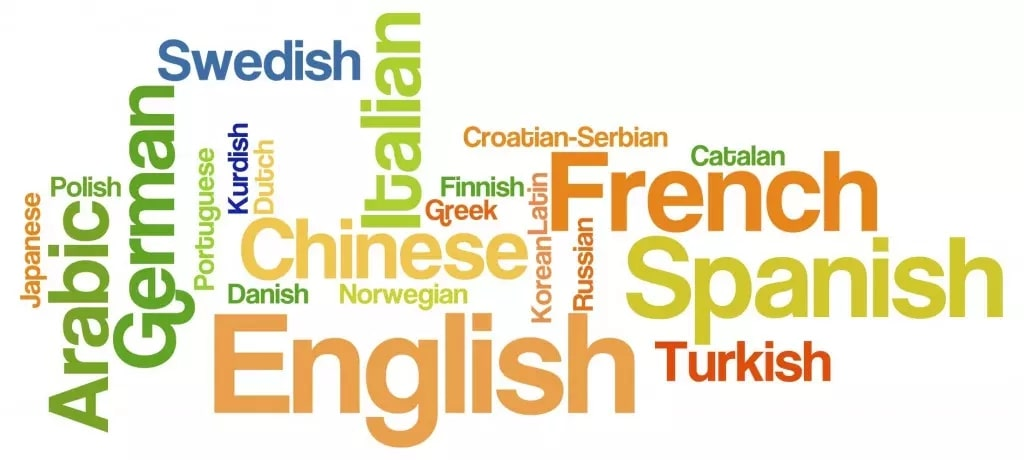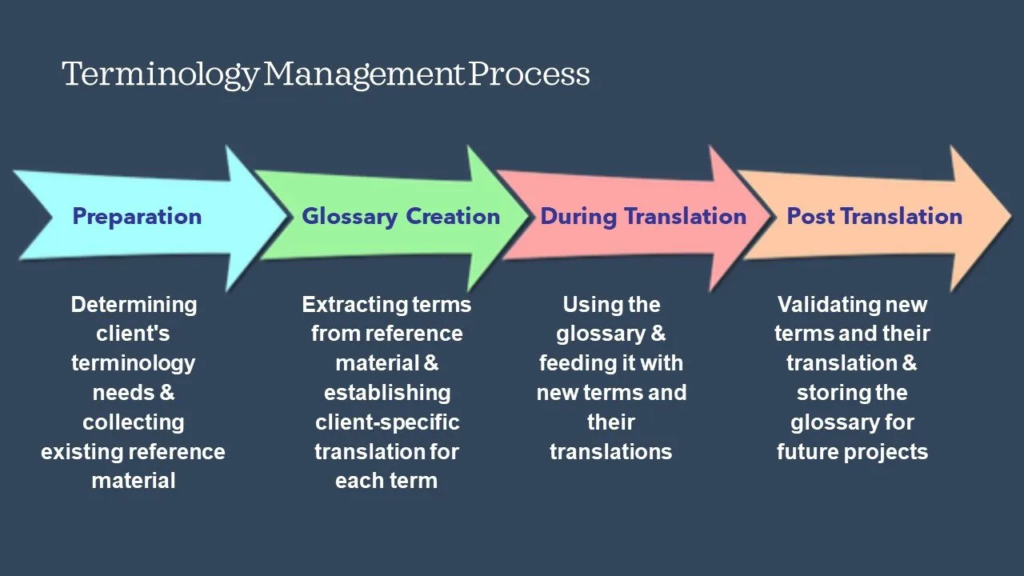All You Need to Know About Language Translation and Terminology Management

Different industries and fields deploy words that are unique to them to convey a thought. They have their own sets of words or jargon that are used for communication, both internally and for the external world. These special terms form the terminology of the particular industry that may appear to be Greek to an outsider. For instance, understanding IT jargon is very difficult for a person from a legal background.
If you are part of a professional translation services company or a research scholar trying to understand the reference point for the terminology of a particular field, you need to have an in-depth understanding of the prevalent language. For that, you cannot turn to the subject matter expert every time you come across a term that is alien to you. Nor is it possible for the best of experts to be well conversant with all the words.
That’s where terminology management gains relevance. Whether you are working on a language translation project or just trying to understand the terms used in an industry, the compilation of all such words that can be referred to whenever required will make your task a hundred times easier.
Understanding Terminology Management
Terminology management refers to all the standard processes necessary for storing, editing, and presenting terminology. It includes all the measures taken by a language translation company to create, build and maintain an operable database of unique words that pertain to a particular industry, company, or organization. It should form an integral part of the language translation tools of any professional translation services company.
Terminology management is essentially a set of activities that lead to the accurate treatment of terminology inside any organization. The process can be broken down into the following sub-processes that combine to give a rich and accurate database of the terms peculiar to that industry.

- Collating unique words and phrases
Each industry operates around a set of concepts and specific terms that define them. These terms have to be identified and collated in the form of a glossary.
- Documenting each word in the collection
For every word and expression, there should be a specific definition of the term that clearly specifies the meaning of the word. Besides that, there should be usage guidelines and any product associations that are allowed.
- Reviewing the document
After the database has been compiled, it is important to run through the document with the client to identify and eliminate all the errors in the document. It also clarifies the preference for one word as opposed to the synonyms.
- Secure the data
Data privacy is an important part of the entire exercise. Whether the glossary contains confidential information or not, no company wants the official document to float around on the Internet freely. Securing the data is of utmost significance in winning the client’s confidence for a website translation services company.
- Access to the glossary
All the translators and collaborators in the language translation project must have easy access to information, but security checks should be mandated so that the stored knowledge cannot be tampered with.
- Updating the information
We live in a dynamic world in which words and their usage keep changing. The document must be periodically updated by the document translation services company.
The Importance of a Terminology Management System (TMS)
Let’s list the benefits of having a TMS for your company.
1. Speed
Correct terminology management can ease the flow of communication within the website translation services company and speed up the translation and legal processes for the company.
2. Time
It saves time and energy, as they have all the information they need in one place. It is one of the most cost-effective ways of increasing productivity in a document translation services company.
3. Consistency
It not only brings consistency to the language translation project but the usage of terminology across the professional translation services company reduces confusion and errors arising out of faulty usage or lack of reference points.
Usage: This one-time exercise can save many stitches in the long term. The database of terminology can prove useful over a period of time and get you clients from the same industry based on experience.

Selecting The Right Terminology Management System
For effective terminology management, language translation services companies rely on a system that is software to build, store, share, and update terms within the glossary.
Software is a fast and accurate way for securing terminology management in a company. Not all software comes with the same features, so you need to be very particular while selecting the software for your organization. Some research has to go into zeroing in on the right software based on the nature of translation services your company specializes in.
Here we outline some points that shall help you in making the right choice:
- The terminology management system should easily integrate with the existing infrastructure and workflow. If this is not the case, it is not the right choice for your organization.
- The search function should be effective to correctly throw the data that is required.
- The TMS should have the possibility of housing a unique database that allows the creation of categories and subcategories. This way you can have the terminology in one place where all the translators and collaborators can access the information easily.
- The number of end users and their needs is also an important consideration. A tool that allows multiple users to access information from different devices and time zones, is the right one for you.
- It should let you track all the changes effected in the terminology for the database to remain accurate and relevant over a period of time.
Wrapping Up
Today when companies and organizations are operating in the connected world across the five continents, it is important to be well-versed with the jargon or terms frequently used in the industry or the field. A good terminology management system in language translation services company can go a long way in delivering the services in the most efficient way and making the operations faster and more accurate. This can result in swelling the number of satisfied customers and also adding new customers to your company.
In the meanwhile, if you are looking for language translation services, look no further than Pepper Content. Check out our language services below.

FAQs
Terms are individual words or expressions that relate to a particular subject or profession. For instance, this could be an ‘affidavit’ in the legal profession or “e-sops” in the start-up world.
Over time, each industry or profession develops a set of words that are unique to it. Terminology is the entire body of these words which are associated with a particular industry or profession or even an organization. They are generally jargon, abbreviations, acronyms, synonyms, and service terms of a particular company.
Here are some of the international standards that can help in terminology management:
IS0 1087-1 for terminology work and terminology
IS0 10241 governs standards for monolingual and multilingual terminology entries
ISO 704 is related to principles and methods in terminology work
TBX ( Term Base eXchange) is an ISO-approved open XML-based standard for exchanging terminological data.
These systems can be considered to be setting a benchmark for TMS in any organization.
In terminology management, a termbase is a database consisting of concepts and related information that is in a multi-lingual format. The entries could also include additional information about the term such as the source or context of the term, subject area or domain of the industry, grammatical information about the industry creation, and modification date, among others.
Latest Blogs
Learn how to rank on AI search engines like ChatGPT, Perplexity, and Gemini by optimizing your content for authority, structure, and relevance. Stay ahead in AI-driven search with this strategic guide.
Explore the best healthcare SEO services for your medical practice. Improve online visibility and effectively reach more patients in need of your services.
Discover top social media agencies specializing in banking solutions, enhancing financial services and driving engagement.
Get your hands on the latest news!
Similar Posts

Translation
5 mins read
6 Reasons to Translate Content into German

Translation
5 mins read
A Guide To Making Your Translation Project a Success

Translation
7 mins read